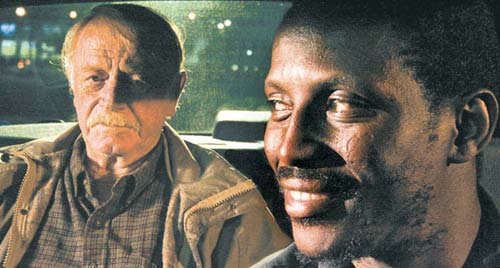
Fridays are normally reserved here at Daily Plastic for new reviews. And unlike the last few weeks when almost nothing good was released, there are some interesting possibilities for today. But we’re having too much fun in Toronto to wax poetic about Burn after Reading and Righteous Kill. But to make it up to you, we’re posting TWO days of TIFF reflections. Cuz you really didn’t want to work today anyway, did’ya? This is Day 7, while Day 6 (due to the brilliance of blogging technology) is farther below.
Today was a strong day, with three winners out of five and only one bad film. The best was Arnaud Desplechin’s A Christmas Tale. Festival co-director Piers Handling introduced it as a movie “about a dysfunctional family par excellence,†and he’s exactly right. The mother Junon (a wonderfully cold Catherine Deneuve) is openly hostile to her son Henri (Mathieu Amalric, delightfully unstable), whom she blames for her eldest son’s death at the age of six. No matter that Henri was still in diapers at the time. Elizabeth (Anne Consigny) detests Henri as well and even went so far as to banish him from the family. Elizabeth’s son Paul is in the midst of a nervous breakdown. And I could go on and on. Only the patriarch Abel (Jean-Paul Roussillon as the doughy moral center of the film) and the youngest son Ivan seem to get along with everyone, but maybe not.










